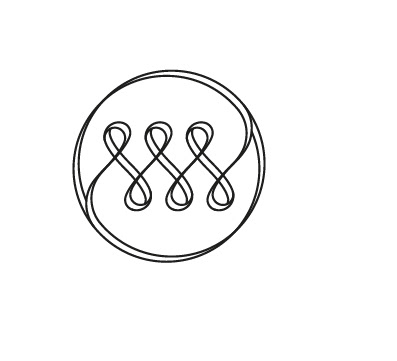Human nature is the inevitable consequence of over five million years of evolution. Its development is ascribed to the fact that human beings are social animals trying to survive on this agitated planet. The expansion of cognition in homo sapiens has enabled novel ways of community collaboration, coordination of actions, and ways to maintain order (Greene, 2018). These early developments in our civilization, continue to shape our behavioral adaptation today in combination with the influence of various disruptions.
The human ability to improve is shaped by a combination of social issues; breakthrough technology mixed with scientific advancements, and consistent economic growth. "The cognitive self is its own implementation: its history and its action are of one piece" (Varela, 1999, p. 54). Strategic design is in the intersection that mediates, analyzes, and correlates these factors to create change (Bühring & Liedtka, 2018). In this context, the Fourth Industrial Revolution will bring great opportunities but also challenges to humanity.
During the last decade, human emotions have been tracked by info-metric and biometric sensors and captured throughout different platforms, turning data into a deity (Harari, 2016). Large corporations are misusing personal data to create profit along with massive disruption in the world's political order. As the line between the physical and the digital self becomes thinner, we are becoming ‘human capital’, we are unquestionably becoming the product (Fisher, 2017; Warren, 2017).
Technology also provides us with possibilities to improve. In this sense, designers have a responsibility to play the role of a synthesizer, a translator, and an enabler for different users. Using empathy to create a new perspective about technology. Comfortable Disruptors understand that automation, AI, and Big Data will take over many jobs. They recognize that human consciousness, along with many other soft skills, can improve mental stamina and empower people for "dark times" (Willis, 2019). The sense of community between humans and machines can be extended through a designerly approach. The most important thing is to invest time in improving human consciousness rather than training the AI to understand humanity (Harari, 2018, pp. 159-167).
Mental wealth will become essential for confronting critical future scenarios. Mindfulness will be considered a quintessential skill in the next few years. Technology is distracting people from their basic senses and, consequently, making them lose connection with the world and the people around them. As designers, it's critical to connect society to new meanings as a collective effort. This notion was suggested by Niklas Luhmann as Social Autopoiesis "who defines autopoietic networks in the social domain as networks of communications" (Capra, 2014; Luhmann, 1984; Luisi, 2006; Mingers, 1992, 1996). Networks are sustained in dynamic modes, permitting new members to intervene, integrate, inspire, and motivate other members to take action in a common goal. The approach of networks is further developed in the ‘open structures' concept of this Taxonomy.
Design calls for individualization amongst designers. Individualism is perceived as the egoistic action of caring only about the self. In contrast, individualization attributes a macro-sociological phenomenon (Beck, 2008), which does not reassure but might result in changes in the state of mind of other individuals. Ultimately, designers can undoubtedly influence a new civic order and improve the environment englobing it.
References:
· Beck, U. (2008). World at risk: The new task of critical theory. Munich University and LSE.
· Bühring, J., & Liedtka, J. (2018). Embracing systematic futures thinking at the intersection of Strategic Planning, Foresight and Design. Journal of Innovation Management.
· Capra, F. (2014). The systems view of life : a unifying vision. Cambridge: Cambridge University Press.
· Greene, R. (2018). Laws Of Human Nature. S.l.: PROFILE BOOKS LTD.
· Harari, Y. N. (2016). Homo deus : a brief history of tomorrow. London: Harvill Secker.
· Harari, Y. N. (2018). 21 lessons for the 21st century (First edition.. ed.). New York: Spiegel & Grau.
· Varela, F. J. (1999). Ethical Know-How: Action, Wisdom, and Cognition: Stanford University Press.
· Warren, N. (2017). Psychopathologies of cognitive capitalism. (Berlin: Archive Books), 367-377.
· Willis, A.-M. (2019). A Lexicon for Designing in Dark Times.
· Beck, U. (2008). World at risk: The new task of critical theory. Munich University and LSE.
· Bühring, J., & Liedtka, J. (2018). Embracing systematic futures thinking at the intersection of Strategic Planning, Foresight and Design. Journal of Innovation Management.
· Capra, F. (2014). The systems view of life : a unifying vision. Cambridge: Cambridge University Press.
· Greene, R. (2018). Laws Of Human Nature. S.l.: PROFILE BOOKS LTD.
· Harari, Y. N. (2016). Homo deus : a brief history of tomorrow. London: Harvill Secker.
· Harari, Y. N. (2018). 21 lessons for the 21st century (First edition.. ed.). New York: Spiegel & Grau.
· Varela, F. J. (1999). Ethical Know-How: Action, Wisdom, and Cognition: Stanford University Press.
· Warren, N. (2017). Psychopathologies of cognitive capitalism. (Berlin: Archive Books), 367-377.
· Willis, A.-M. (2019). A Lexicon for Designing in Dark Times.
